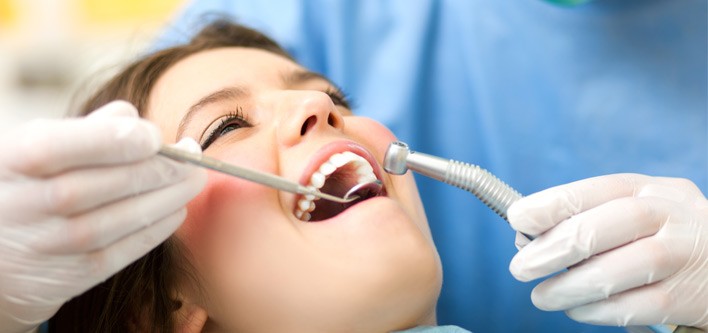Fluoride Therapy

Benefits of Fluoride Therapy
Did you know that your teeth have a built-in defense system to help protect them from cavities and tooth decay? This defensive covering is called enamel and it forms a hard, protective shell over the surface of your teeth. However, bacteria can eat away at this protective layer if you don’t properly clean and take care of your mouth. Dentists recommend receiving regular fluoride treatments to help strengthen your enamel and reverse the effects of tooth decay. Fluoride treatments can also help children develop strong, healthy teeth for years to come.
What is Fluoride?
Fluoride is a mineral that can be found naturally in food and water. This mineral helps strengthen the enamel on your teeth by replacing the nutrients that are lost over time. Fluoride treatments can replace these minerals and quickly repair holes in your enamel. After the teeth have been exposed to fluoride, they tend to become more resistant to acid, making it less likely that they will decay in the future.
What Are The Benefits of Fluoride?
Fluoride’s primary benefit is that it helps prevent tooth decay and can even reverse erosion that has already taken place. As mentioned previously, if plaque forms on the teeth and eats away at the enamel, fluoride treatments can replace the minerals in the enamel that have eroded. This allows teeth to remain healthy.
Fluoride treatments are especially important for children under the age of six. Even though young children don’t yet have their permanent teeth, fluoride treatments can prevent bacteria build-up around the gums, fight gingivitis and help establish long-term dental health.
Fluoride treatments are even more important if you require special oral care. Anyone who wears braces should receive fluoride treatments regularly to prevent bacteria from getting trapped underneath the wires. People who are undergoing radiation for cancer in the head or neck should also make it a priority to have fluoride treatments. Radiation can damage the glands in our mouth that produce saliva. Saliva is necessary to neutralize the harmful acids that are released as we chew. Saliva also stops food particles from making direct contact with your teeth. If you have less saliva in your mouth, you are more susceptible to tooth decay.